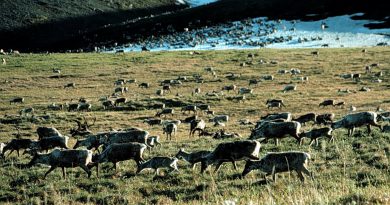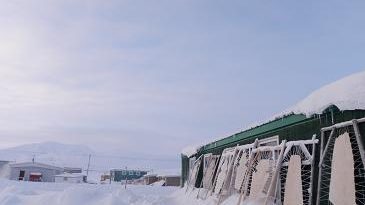A new industry in the Arctic: Server farms
A lot has been said about the competition for the Arctic’s natural resources, like oil and gas, fisheries, and minerals. Little has been said about using the cold as a resource. Now, of all companies, Facebook is intending to capitalize on the Arctic’s frigid climate by building a data center in Luleå, on the coast of Swedish Lapland. The city, Sweden’s seventh-most populated, already has a sizable IT industry and a large university, so it is not terribly surprising that after reportedly considering 40 locations in the country, Facebook chose Luleå. Another advantage is that by locating the servers in Europe, Facebook will be able to provide faster service for its members in Europe.
Most importantly for the data center, the town’s sub-Arctic average temperature, which hovers in the 30′s (Fahrenheit) year-round, will keep Facebook from having to spend a lot of money on air conditioning, fans, and ventilation to keep the servers cool. Of course, the data center will still need electricity to run. With three large buildings covering the size of eleven football fields, the server farm will consume 120 MW of energy, as much as 16,000 homes. The cost for this energy consumption is estimated to be $72 million a year. The data center will be completely powered by fifteen hydropower stations on the nearby Lule River, which generate 12.7 billion KWh of electricity. For comparison’s sake, the Hoover Dam generates an average of 4 billion Kwh annually. In the case of an emergency, Facebook’s server farms will have back-up diesel generators.
Facebook’s investment will be a boon to Luleå’s economy, and server farms could be a new source of economic growth throughout the rest of the circumpolar north. However, it can’t just be cold: there has to be a major source of inexpensive energy nearby, too. Sweden’s business-friendly government helps matters as well. For other countries in the Arctic to attract technology companies looking to build server farms, they’ll need to have all three of the above. It will be interesting to see if Russia, which also has low average temperatures and over fifty hydropower stations, but a notably less business-friendly environment, will be able to attract tech companies looking to keep in the cold.
News Links
“Report: Facebook to build huge data center near Arctic Circle,” Scribbal



